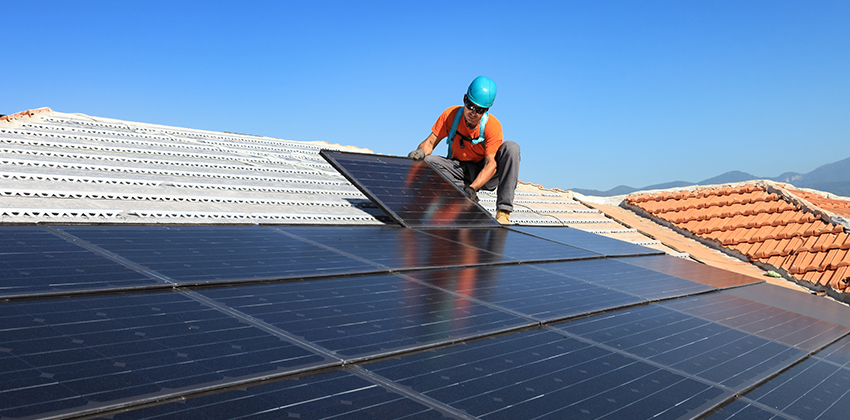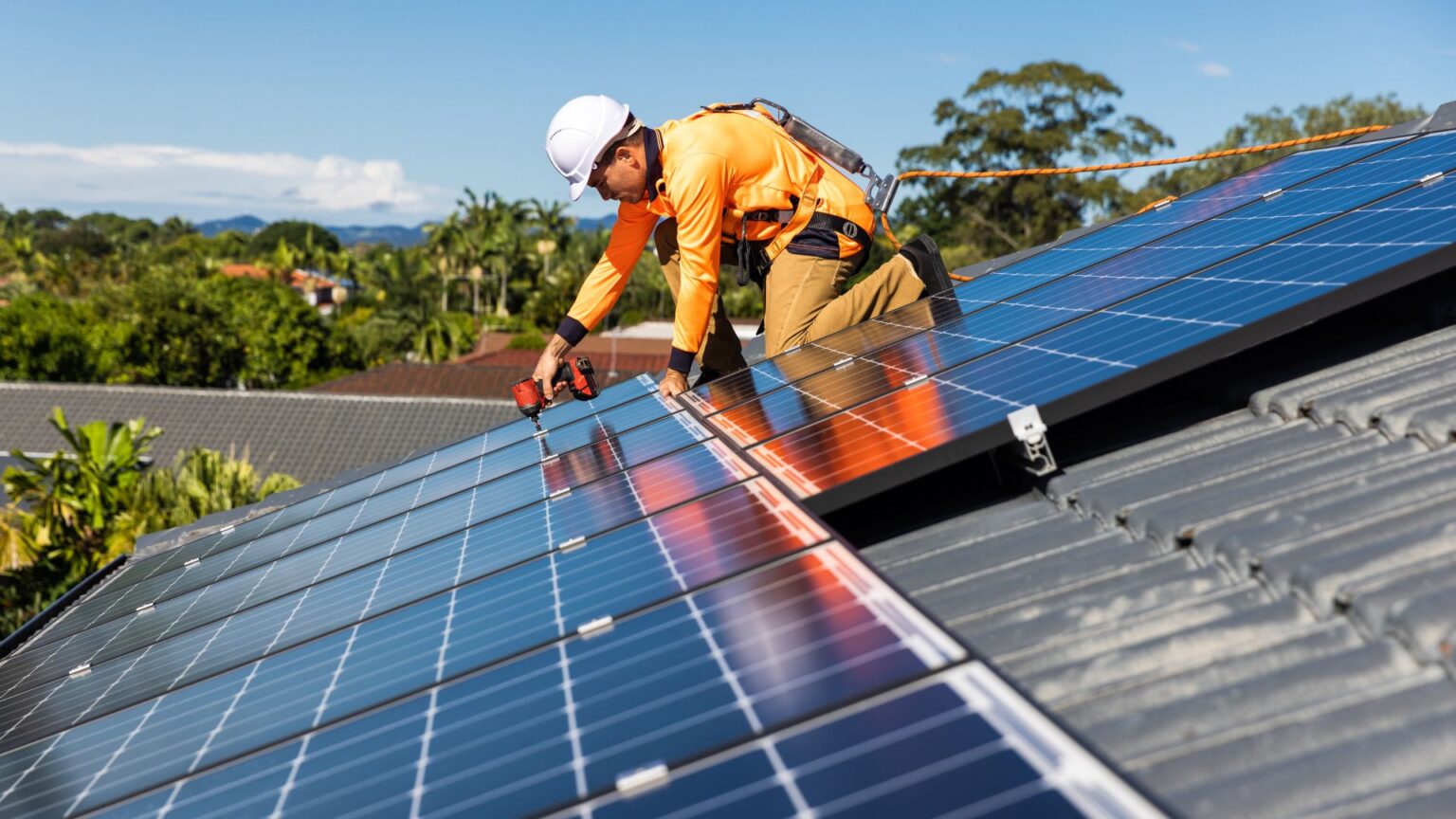Why Solar Panels for Business are a Smart Investment: Long-Term Benefits and Financial Savings
Why Solar Panels for Business are a Smart Investment: Long-Term Benefits and Financial Savings
Blog Article
Exactly How to Choose the Right Solar Energy Installation for Your Energy Demands
Choosing a proper solar power setup requires a methodical strategy that starts with a clear understanding of your power consumption patterns and anticipated future requirements. Variables such as the kind of solar innovation, installation costs, and offered motivations play critical roles in making an educated choice.
Assess Your Energy Demands
Examining your energy requires is an important very first action in the solar power setup procedure. Understanding your present and future power consumption will guide the style of an efficient solar system customized to your demands.
Consider seasonal variations in energy consumption, as specific months might demand more power due to home heating or cooling demands. Furthermore, evaluate any type of scheduled changes in way of living or home, such as the purchase of electrical automobiles or home expansions, which may enhance your energy demands in the future.
As soon as you have a comprehensive understanding of your energy usage, you can determine the ideal solar capability needed to satisfy those requirements. This evaluation not only assists in sizing the solar installation yet also notifies decisions about energy storage services and prospective grid link demands. solar photovoltaic. Inevitably, precisely determining your energy requires makes sure that your solar power system operates efficiently, providing the advantages of renewable resource in placement with your usage patterns

Evaluate Solar Innovation Options
When thinking about a solar energy installation, it is necessary to review the different solar innovation choices readily available to make sure the system straightens with your energy demands and budget. The main technologies consist of monocrystalline, polycrystalline, and thin-film solar panels, each offering distinctive benefits and drawbacks.
Monocrystalline panels are understood for their high effectiveness and performance in restricted area, making them appropriate for domestic installations with much less roofing system area. However, they tend to be a lot more pricey. Polycrystalline panels, while slightly less reliable, are typically extra affordable and can be an excellent option for bigger installments where space is not a constraint. Thin-film photovoltaic panels are lightweight and adaptable, suitable for unconventional surface areas, however they typically have lower efficiency and need more room to create the same power output.
Along with panel kinds, think about solar inverters, which transform the straight existing generated by the panels right into rotating present for home usage. String inverters, microinverters, and power optimizers each have one-of-a-kind advantages that can affect system efficiency. Examining these alternatives will assist you make an educated choice that satisfies your power requirements effectively.
Take Into Consideration Installation Prices
Recognizing installment costs is essential for any person taking into consideration a solar energy system. These prices can differ substantially based upon several aspects, consisting of system dimension, kind of panels, and installation intricacy. A normal residential solar setup might range from $15,000 to $30,000 before incentives, which can be a significant in advance investment.
To accurately assess installment costs, it is vital to get in-depth quotes from numerous solar suppliers. These quotes need to break down the prices of equipment, labor, permits, and any additional accessories needed for the installment. Pay very close attention to the quality of products being used, as higher-quality panels and inverters can cause better efficiency and long life, potentially balancing out higher initial prices.
In addition, take into consideration the long-lasting implications of installation prices. A cheaper installation might conserve money ahead of time yet might cause higher maintenance costs or reduced power production in time. It is also recommended to assess funding alternatives, such as solar car loans check my source or leases, which can affect your total monetary commitment.
Research Local Incentives
Exploring neighborhood rewards can substantially affect the total price of a solar energy installation. Many regions provide a range of monetary rewards targeted at advertising renewable resource use, making solar energy extra obtainable and budget-friendly for home owners and services alike.
These incentives may include federal tax obligation credit scores, state rebates, and neighborhood energy company programs that provide cash motivations or net metering alternatives. As an example, the Federal Financial Investment Tax Credit History (ITC) allows you to deduct a significant percent of your solar setup prices from your federal taxes. State-specific motivations can further enhance these savings, often in the form of straight cash discounts or tax credit ratings.
Furthermore, some local federal governments might offer real estate tax exemptions for solar installations, making sure that your investment does not enhance your residential or commercial property tax responsibility. Looking into these incentives can reveal significant savings, which can affect your decision on the dimension and kind of solar system to set up.

Pick a Reputable Installer
Picking a trustworthy installer is critical to making certain the success and long life of your solar energy system. The installment process considerably impacts the performance and effectiveness of your photovoltaic panels, making it imperative to select a specialist with a tried and tested record. Begin by researching regional installers through online evaluations and testimonies. Sites such as the Better Organization Bureau can give understanding into client satisfaction and solution integrity.
Following, confirm the installer's credentials, including licenses, qualifications, and insurance coverage. A credible installer should hold certifications from identified organizations, such as the North American Board of Qualified Energy Practitioners (NABCEP), indicating a high level of proficiency. Additionally, ask concerning the installer's experience with comparable jobs, specifically in your location, as regional environment and laws can influence installation practices.
Demand multiple quotes and contrast them not only on rate however likewise on the top quality of tools and service warranties provided. A trustworthy installer ought to give clear information concerning their items and solutions, helping you make a notified decision. By investing time in selecting a respectable installer, you will boost the total efficiency and durability of your solar power system.
Verdict
Finally, picking the suitable solar energy installment necessitates a comprehensive examination of energy needs, an understanding of readily available solar innovations, and a careful consideration of setup prices. Checking out regional motivations can enhance economic benefits, while selecting a trusted installer ensures top quality workmanship and reliability. solar photovoltaic. By carefully analyzing these factors, individuals can attain an optimum solar click here for more info service that meets both existing see and future energy demands, eventually adding to lasting energy techniques and expense financial savings gradually
Report this page